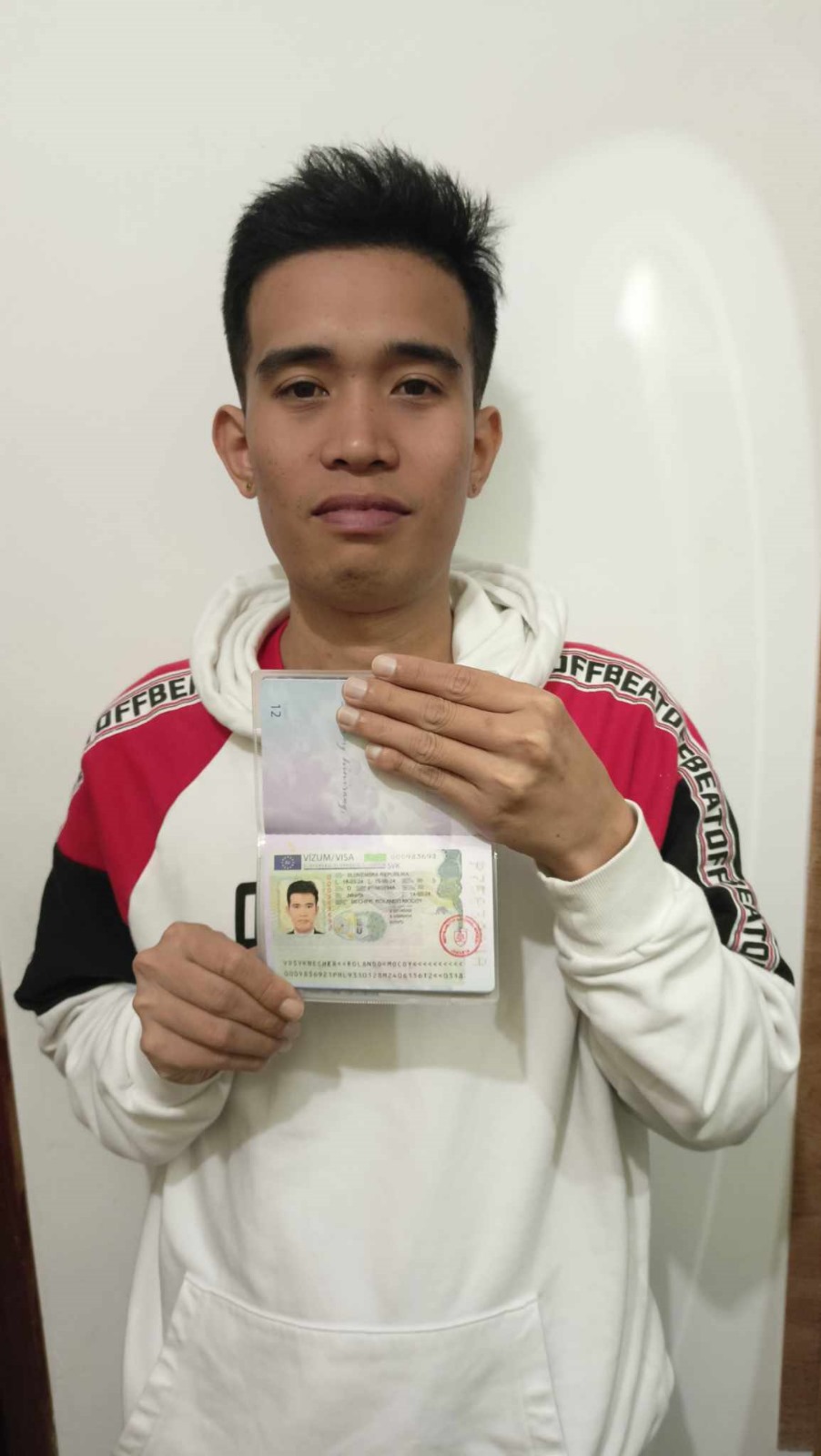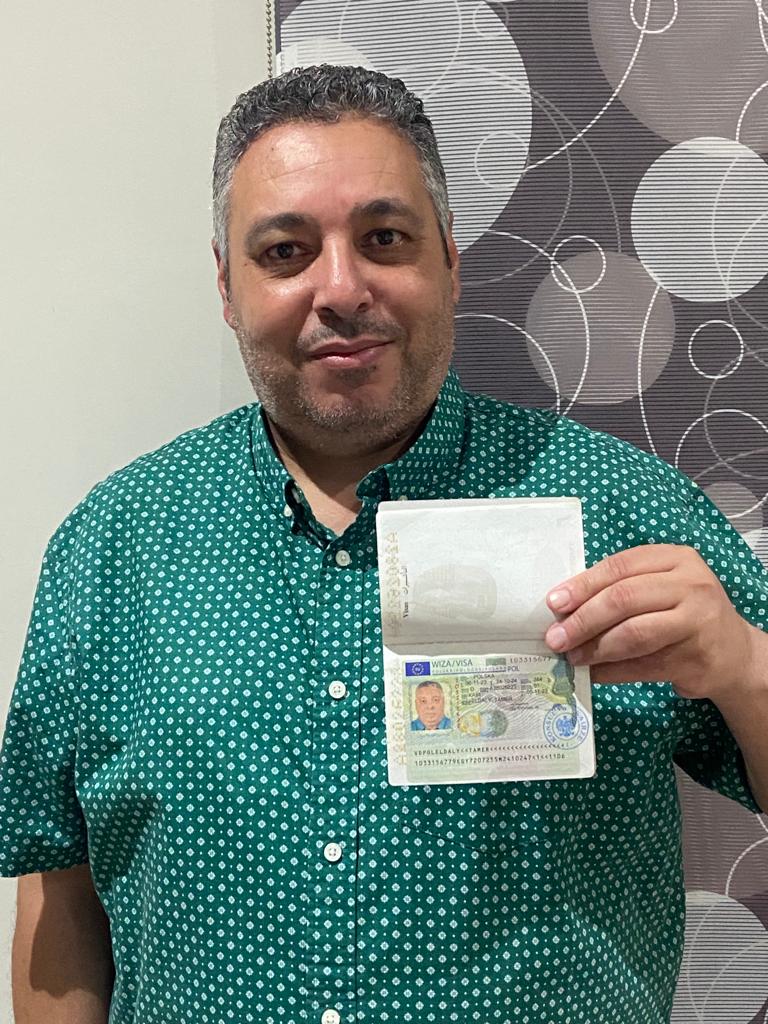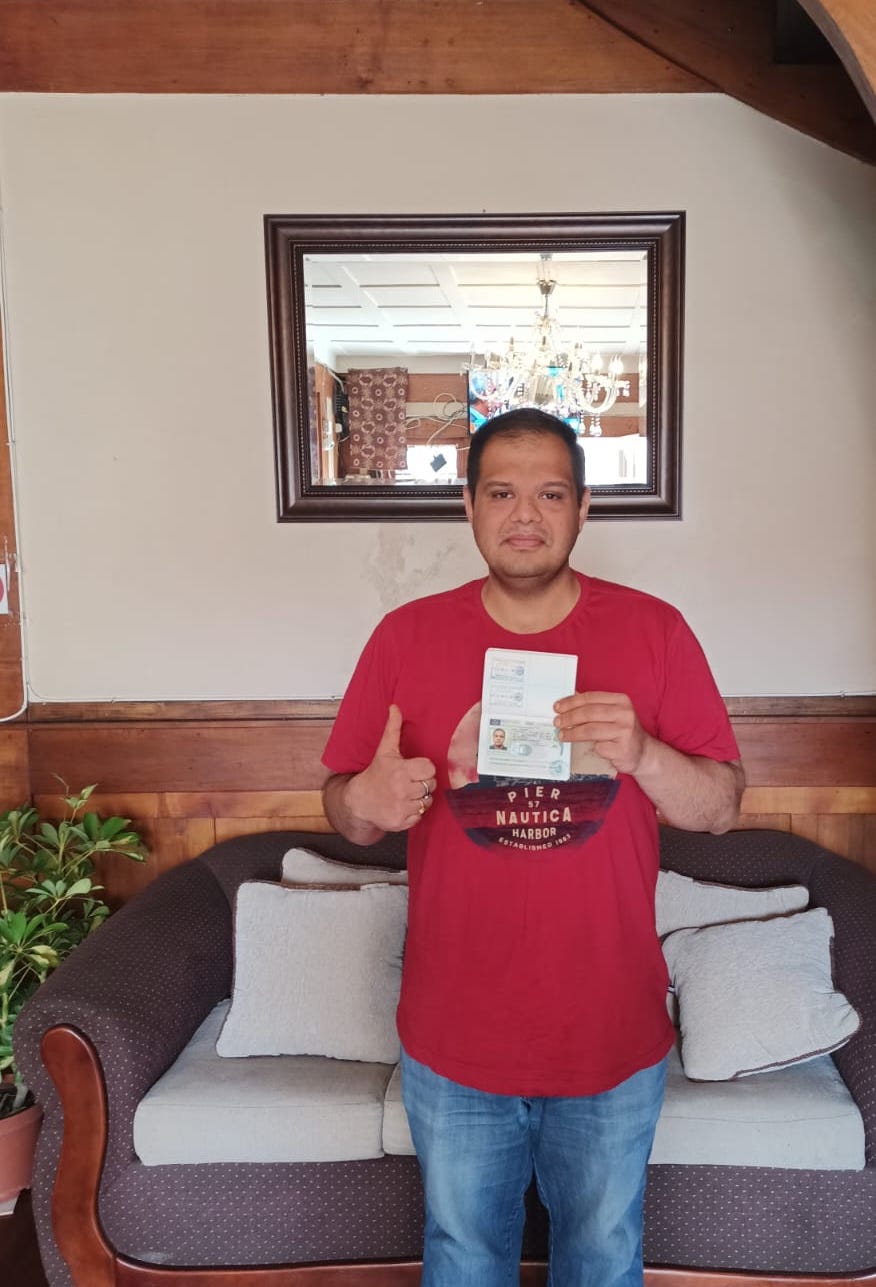

Poland Embassy Visa Interview Questions Guide
Are you dreaming of wandering through the enchanting castles of Krakow, walking down Warsaw’s historic streets, or enjoying a plate of pierogi in a charming Polish village? Your adventure in Poland starts with one crucial step: the embassy visa interview.
For many travellers, the thought of this interview can be intimidating. What will they ask? How do you prepare? The visa process might feel like a roadblock between you and your Polish adventure. But don’t worry! You can confidently and efficiently tackle your Poland visa interview with proper preparation and insight.
This guide will help you navigate every aspect of the Poland embassy visa interview. From how to prepare to the most commonly asked questions and even what to do after the interview, we’ve got all the bases covered. Let’s dive in and get you one step closer to your Polish dream!
Preparation for Your Poland Embassy Visa Interview
A. Essential documents to gather
Before your Poland Embassy visa interview, you must gather all necessary documents. Here's a comprehensive list of essential items:
- Valid passport
- Completed visa application form
- Recent passport-sized photographs
- Proof of accommodation in Poland
- Travel itinerary or flight reservations
- Proof of financial means
- Travel insurance
- Employment or study documentation (as applicable)
|
Document Type |
Purpose |
|---|---|
|
Passport |
Identification and travel |
|
Visa application |
Official request for entry |
|
Photographs |
Visual identification |
|
Accommodation proof |
Shows planned residence |
|
Travel itinerary |
Demonstrates travel plans |
|
Financial proof |
Ensures sufficient funds |
|
Insurance |
Covers potential health issues |
|
Employment/study docs |
Validates purpose of visit |
B. Research Poland's culture and current events
Familiarize yourself with Polish culture and recent developments:
- Study basic Polish customs and etiquette
- Read about Poland's history and major cultural landmarks
- Stay updated on current political and economic situations
- Understand Poland's relationship with the EU and neighboring countries
C. Practice common interview questions
Prepare answers to frequently asked questions:
- Why do you want to visit Poland?
- How long do you plan to stay?
- What are your plans after your visit?
- How will you finance your stay?
- Do you have any contacts in Poland?
D. Plan your attire and appearance
Make a positive first impression:
- Choose conservative, business-casual attire
- Ensure clothes are clean and well-pressed
- Maintain good personal hygiene
- Avoid excessive jewelry or strong fragrances
Now that you're prepared with essential documents and knowledge, let's explore the different types of Poland visas and their specific requirements.
Tips for a Successful Visa Interview
A. Arrive early and composed
Arriving early for your Poland embassy visa interview is crucial for success. Aim to reach at least 30 minutes before your scheduled time. This allows you to:
- Go through security checks without rushing
- Familiarize yourself with the embassy environment
- Review your documents one last time
- Calm your nerves and compose yourself
|
Benefits of Early Arrival |
Impact on Interview |
|
Reduced stress |
Improved confidence |
|
Time for final preparation |
Better articulation |
|
Punctuality impression |
Positive start |
B. Speak clearly and confidently
Clear and confident communication is key during your visa interview. Remember to:
- Maintain eye contact with the consular officer
- Speak at a moderate pace, enunciating clearly
- Use a confident tone, avoiding hesitation or mumbling
- Practice your English pronunciation if it's not your first language
C. Provide honest and concise answers
Honesty is paramount in visa interviews. Consular officers appreciate straightforward responses:
- Answer questions directly without unnecessary elaboration
- Stick to the facts and avoid exaggeration
- If you don't know an answer, it's okay to say so
- Be prepared to provide additional information if asked
D. Address the consular officer respectfully
Showing respect to the consular officer can positively influence your interview:
- Use formal titles like "Sir" or "Madam"
- Maintain a polite and professional demeanor throughout
- Listen carefully to questions before responding
- Thank the officer for their time at the end of the interview
Now that you're equipped with these essential tips, let's explore potential red flags that might arise during the interview and how to address them effectively.
Potential Red Flags and How to Address Them
A. Inconsistencies in your application
Inconsistencies in your visa application can raise red flags during the interview process. To address this potential issue:
- Double-check all information: Ensure that dates, personal details, and travel plans are consistent across all documents.
- Prepare explanations: If there are any discrepancies, be ready to provide clear and honest explanations.
- Bring supporting documents: Have additional paperwork on hand to clarify any potential inconsistencies.
B. Lack of strong ties to home country
Demonstrating strong ties to your home country is crucial for visa approval. Here's how to address this concern:
- Employment: Bring proof of current employment or business ownership.
- Family: Provide evidence of family responsibilities in your home country.
- Property: Show documentation of property ownership or long-term leases.
- Financial commitments: Present bank statements or investment records.
C. Insufficient funds for your trip
To address concerns about financial capability:
- Provide detailed bank statements
- Show proof of income or sponsorship
- Present a realistic budget for your stay in Poland
|
Expense Type |
Estimated Cost (PLN) |
Notes |
|---|---|---|
|
Accommodation |
2,000 - 4,000 / month |
Varies by city and type |
|
Food |
1,000 - 1,500 / month |
Includes groceries and dining out |
|
Transportation |
200 - 400 / month |
Public transport or car expenses |
|
Miscellaneous |
500 - 1,000 / month |
Entertainment, shopping, etc. |
D. Previous visa rejections or overstays
If you have a history of visa rejections or overstays:
- Be upfront about previous issues
- Explain the circumstances and what you've learned
- Provide evidence of positive changes since the incident
- Demonstrate your commitment to following visa regulations
Remember, honesty and transparency are key when addressing potential red flags during your Poland visa interview.
Post-Interview Process and Next Steps
A. Understanding the decision timeline
After your Poland embassy visa interview, it's crucial to understand the decision timeline. Generally, the processing time can vary depending on the type of visa and individual circumstances. Here's a breakdown of typical timelines:
|
Visa Type |
Average Processing Time |
|
Work Visa |
2-4 weeks |
|
Student Visa |
1-3 weeks |
|
Business Visa |
1-2 weeks |
|
Tourist Visa |
5-10 business days |
|
Dependent Visa |
2-4 weeks |
Remember, these are average timelines and can be subject to change. It's advisable to:
- Check the embassy website regularly for updates
- Avoid making travel plans until you receive a decision
- Be patient and refrain from contacting the embassy unnecessarily
B. Handling approval scenarios
If your visa is approved, congratulations! Here are the next steps:
- Wait for official communication from the embassy
- Follow instructions for passport collection
- Review your visa details carefully upon receipt
- Plan your travel accordingly
C. Addressing potential rejections
In case of a rejection, don't lose hope. Here's what you can do:
- Carefully read the rejection letter to understand the reasons
- Assess if you can address the concerns in a new application
- Consider seeking legal advice if necessary
- Prepare a stronger application if you decide to reapply
D. Passport collection procedure
Once a decision is made, you'll be notified about passport collection. The process typically involves:
- Receiving an email or SMS notification
- Scheduling an appointment for collection (if required)
- Bringing necessary identification documents
- Signing for receipt of your passport
Remember to check your visa details immediately upon collection to ensure all information is correct. With these steps in mind, you'll be well-prepared for the post-interview process and next steps in your Poland visa journey.
Your Poland embassy visa interview is a crucial step in your journey to visit this beautiful European country. By understanding the different types of visas, preparing thoroughly for common interview questions, and following our tips for success, you'll be well-equipped to navigate the process with confidence. Remember to address any potential red flags honestly and proactively, and familiarize yourself with the post-interview steps to ensure a smooth application process.
As you embark on this exciting adventure, approach your visa interview with a positive attitude and genuine enthusiasm for your trip to Poland. With careful preparation and a clear understanding of the requirements, you'll be one step closer to experiencing the rich culture, history, and hospitality that Poland has to offer. Best of luck with your visa application, and may your future travels be filled with unforgettable experiences in this captivating country.
Poland Work Visa
- What is the process for obtaining a Poland work visa?
- Secure a job offer, apply for a work permit, and then apply for a national visa (D-type) at a Polish consulate.
- What is the validity of a Poland work visa?
- Typically valid for up to 1 year, renewable based on employment.
- Can I change employers on a Poland work visa?
- Yes, but you need a new work permit tied to your new employer.
- How long does it take to process a work visa for Poland?
- 2-3 months, depending on workload at the consulate and work permit issuance.
- What documents are required for a Poland work visa?
- Work permit, employment contract, passport, visa application form, proof of accommodation, and insurance.
- Is a work permit necessary for all foreign nationals?
- Yes, except for EU/EEA citizens and some exemptions for specific professions.
- Are dependents allowed under a Poland work visa?
- Yes, dependents can apply for a visa, but their work and stay permissions vary.
- What are the fees for a Poland work visa?
- Around €60-€100, depending on the consulate.
- Can I work while my work visa application is in progress?
- No, you must wait for your visa approval.
- Is knowledge of Polish required for a work visa?
- Not mandatory, but language skills can be beneficial for certain jobs.
Poland Student Visa
- Who needs a Poland student visa?
- Non-EU/EEA students accepted into a Polish educational institution.
- What is the validity of a Poland student visa?
- Usually issued for the duration of the study program, up to 1 year, and renewable.
- Can I work on a Poland student visa?
- Yes, up to 20 hours per week during studies and full-time during vacations.
- What documents are needed for a Poland student visa?
- University acceptance letter, proof of financial means, insurance, passport, and visa application form.
- How long does it take to process a Poland student visa?
- 15-60 days, depending on the consulate.
- Is health insurance mandatory for a student visa?
- Yes, valid coverage is required for the entire study period.
- Can I bring dependents on a student visa?
- No, dependents need to apply for separate visas.
- Can I switch to a work visa after completing my studies?
- Yes, after securing a job and applying for a work permit.
- What are the fees for a Poland student visa?
- Approximately €60.
- Is proficiency in Polish required for a student visa?
- Not necessarily, but universities may require proof of English or Polish proficiency.
Poland Business Visa
- What is a Poland business visa?
- A short-stay visa (Schengen type-C) for attending business meetings, conferences, or other professional purposes.
- What is the validity of a Poland business visa?
- Typically valid for up to 90 days in a 180-day period.
- What documents are required for a business visa?
- Invitation letter from a Polish company, business registration details, travel itinerary, insurance, and financial proof.
- How long does it take to get a Poland business visa?
- Around 15 days, but it can take longer in peak seasons.
- Can I work on a Poland business visa?
- No, it is strictly for business activities like meetings or negotiations.
- What is the fee for a Poland business visa?
- Around €80 for Schengen visas.
- Is an invitation letter mandatory for a business visa?
- Yes, it is one of the key documents.
- Can I extend a business visa in Poland?
- Extensions are rare and only granted under exceptional circumstances.
- What are the financial requirements for a business visa?
- Proof of sufficient funds to cover stay and travel expenses.
- Can I bring dependents on a business visa?
- No, dependents must apply for separate visas.
Poland Visitor/Tourist Visa
- What is the purpose of a Poland visitor visa?
- For tourism, visiting family or friends, or exploring the country for short stays.
- How long can I stay on a tourist visa?
- Up to 90 days in a 180-day period.
- What documents are required for a tourist visa?
- Travel itinerary, accommodation proof, insurance, financial proof, and passport.
- How long does it take to process a tourist visa?
- Approximately 15 days.
- What is the fee for a tourist visa?
- Around €80 for Schengen visas.
- Can I work on a tourist visa?
- No, it does not permit employment.
- Is travel insurance mandatory for a tourist visa?
- Yes, with coverage of at least €30,000.
- Can I extend a tourist visa in Poland?
- Rarely, and only under exceptional circumstances.
- Can I apply for a tourist visa without a hotel booking?
- No, proof of accommodation is required.
- Do I need a return ticket for a tourist visa?
- Yes, it demonstrates intent to leave Poland.
Poland Dependent Visa
- Who can apply for a dependent visa?
- Spouses, children, or dependent family members of work or student visa holders.
- Can dependents work on a dependent visa?
- No, they must apply for a separate work permit.
- What is the validity of a dependent visa?
- Matches the primary visa holder's validity.
- What documents are required for a dependent visa?
- Proof of relationship, financial support, primary visa details, and insurance.
- How long does it take to process a dependent visa?
- Around 30-60 days.
- What are the fees for a dependent visa?
- Similar to other visa types (€60-€100).
- Can dependents study on a dependent visa?
- Yes, but additional permissions may be needed for higher education.
- Can dependents travel within the Schengen area?
- Yes, if the visa is valid.
- Is an invitation letter required for a dependent visa?
- Not mandatory, but proof of sponsorship is needed.
- Can dependents switch to a work or student visa?
- Yes, but they need to meet the eligibility criteria for the new visa type.


















